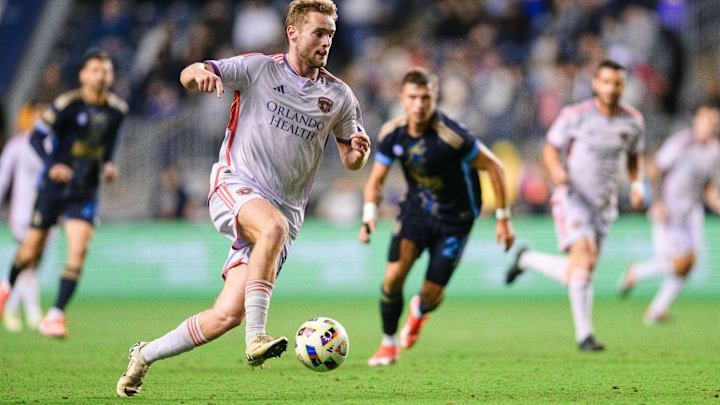Orlando City SC came off the pitch with an exhausting 3-2 win over Philadelphia Union. The stoppage time ran dangerously long.
MLS reviews and has tinkered with how the Beautiful Game operates on its pitches. Timing has been high on the examination list.
The cumulative adjustments in the Orlando-Philadelphia match resulted in a mammoth 18 minutes of stoppage time. That left everyone from Orlando City SC supporters to the players confused.
Yet, Orlando players proved they have the skill and dedication to teamwork to finish every minute of the match and win it.
What could cause that match to stretch more than 10 minutes beyond the 90? There are some answers to that. One answer is in the latest revision to MLS timing rules.

In this recent announced change called the Timed Substitution Rule, when the fourth official signals with the substitution board, the player leaving has 10 seconds. If they take longer, the player coming in has to for 60 seconds while play continues at a disadvantage.
They have an answer for multiple substitutions, as well. In this case, each exiting player must watch the board for identification. Because that's the moment the 10-second clock starts.
Also, the referee can issue a yellow card for time-wasting. But there are exceptions, also. Those include goalkeeper substitutions, injuries, safety and security reasons, and any other special situations the league approves.
Then there’s the recent rewriting of the Off-field Treatment Rule, which also has time written into it. An injured player who stays down for 15 seconds can trigger the referee to call for medical attention. If deemed ready to return, the previously injured player has to stay out at least two minutes before returning to the pitch – the new part of the rule.
In any and every case, it’s the referee who will manage time in every match. That official will determine the stoppage time to account for the above situations, plus cooling breaks, video reviews, time-wasting, and any other allowed and measurable circumstance that pauses play.
If MLS decides to cap how long that stoppage time can get, it will have to write that rule, too.
